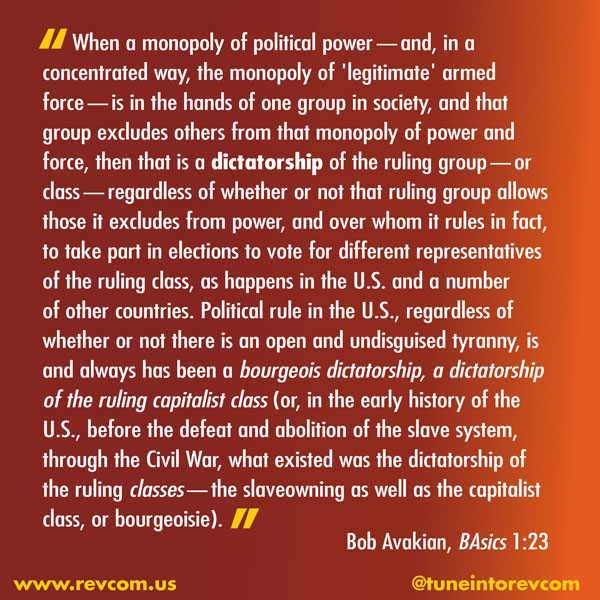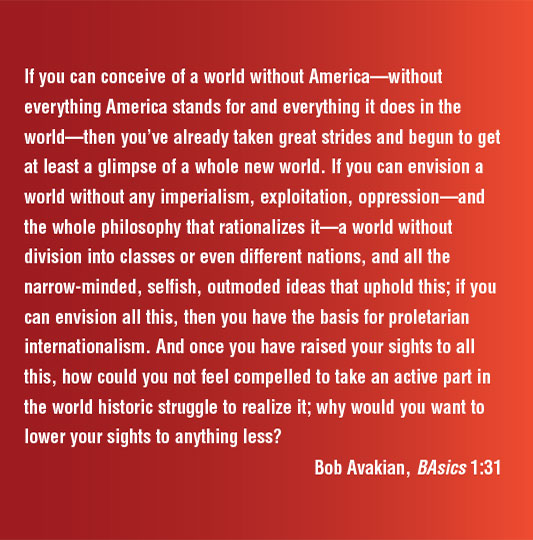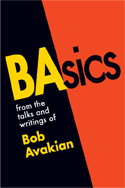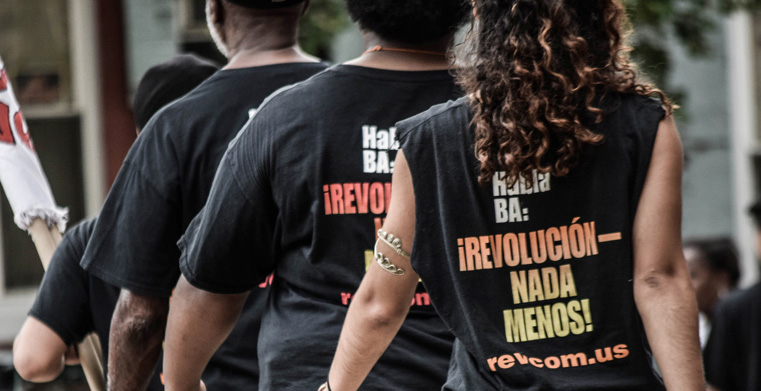Answering the call to discuss BAsics – an important way to become much more scientific
| Revolution Newspaper | revcom.us
From the Revolution Club, Los Angeles:
We wanted to write in to tell the newspaper how we’ve understood the importance of holding weekly BAsics discussions with a quote selected from revcom.us every week, in relation to building a movement for an actual revolution. BAsics, from the talks and writings of Bob Avakian is a selection of quotations and short essays—it really is the handbook for revolution. Each quote concentrates the scientific method that people need to understand and transform reality. Really digging into these quotes is a big way of how we see training people to lead and strengthening and expanding the solid core of the movement for revolution.
We’ve been asking people who haven’t led discussions like this before to step up and co-lead with more experienced comrades as a part of enabling them to develop their ability to lead and bring forward others to do the same. We’ve also been going out broadly, putting the quotes on poles around our Organizing Center and inviting new people.
While there has been some “bouncing off” the quotes—giving rise to discussing a whole range of questions—we have tried to more return to, and keep digging deeper into, the quotes themselves. There is so much science concentrated in these BAsics quotes and so much to “unpack.”
In the discussions, there has been an ongoing struggle over materialism vs. various forms of idealism or moralism—just treating the problem as rich vs. poor, or bad people doing bad things instead of understanding the deeper, underlying and driving dynamics of this system.
For example, in the discussion of BAsics 1:23, the first couple rounds left it as if the problem was that the monopoly of the legitimate use of armed force arose just because the ruling class had more money to buy that force. At a certain point, the person leading the discussion pointedly asked: “So this could be dealt with if we just took the money out of politics?” This sharpened up the discussion—because it’s clear that taking the money out of politics won’t change the basic nature and functioning of this system, and its repressive armed forces. This led people to get more deeply into what it means that this is a “bourgeois dictatorship, a dictatorship of the ruling capitalist class.” The capitalist class isn’t principally defined by having money, it’s principally defined by its control over the means of production. As one person put it, “Wait, this is about production, not just wealth.” In order to control those means of production, the state enforces the underlying production relations. Digging into this changed the whole discussion... then people got into the fact that the kind of democracy and dictatorship you have will flow out of all that. This is why you can’t just “level the playing field by getting the money out of politics.” THIS state enforces THIS system. In this, we also drew on BAsics 1:22.
In the most recent discussion, of BAsics 1:31, we dug more into historical materialism and the relationship between ideas and the economic base. There was a lot of exposure of the history of this country—what does American stand for and what does it do in the world? One person new to the revolution kept bringing it back to the importance of context—and how so much of the reactionary modes of thinking in this country stem from the fact that people constantly strip the contradictions we face of the actual material and historical context. For example, not understanding the present-day impact of the history of slavery and white supremacy. In addition to digging into the moral importance of internationalism, we got into the nature and functioning of imperialism and why you have to apply historical materialism to really understand the problem. There was also some discussion about how “all the narrow-minded, selfish, outmoded ideas” uphold this system. First, if you can't see beyond a world divided into nations with America at the top of that heap, you accept the terms and take up the modes of thinking that justify all this. Second, we got into how this isn’t just bad people with bad ideas, but how the very operation of capitalism-imperialism enforces and engenders the ideas that lead to all the cutthroat, vicious competitiveness. How the very work required to imagine a world without America puts you more into thinking about things from the perspective of humanity first.
The more we got into all this—what America stands for and what it does in the world, and the thinking that justifies this—someone kind of marveled that they were still having a hard time imagining beyond all that. We encouraged people to dig more into the Constitution for the New Socialist Republic in North America, and someone else brought in a lot of thinking from the recent revcom.us series on Hurricane Florence. We also read BAsics 2:15 and talked more about the material basis to get beyond a world without America.
So as you can see from these two examples, these BAsics discussions are a very important way for the movement for revolution to become much more scientific—and it’s also an important and underestimated way to recruit and train new forces for revolution. You can see, even just from these discussions, what it means that “You can’t change the world if you don’t know the BAsics.”


BAsics, from the talks and writings of Bob Avakian
"You can't change the world if you don't know the BAsics."
BAsics, from the talks and writings of Bob Avakian is a book of quotations and short essays that speaks powerfully to questions of revolution and human emancipation.
Order the book or download the book in ePub format HERE
Get a free email subscription to revcom.us:



